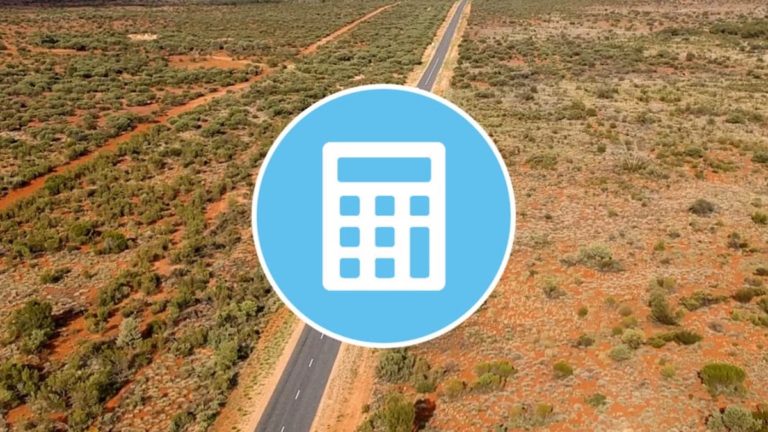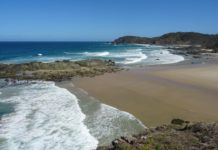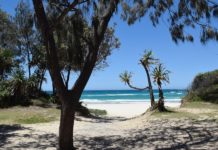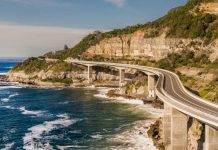
To plan a road trip it is essential to know how much budget you need to calculate. There are many factors to consider when calculating a road trip budget. It’s not easy to know in advance how much you’ll spend on a trip. With this calculator, you can know what budget you need to plan according to your needs for your road trip.

Expenditure Items
The values defined in this simulator are estimated from the average prices in Australia. The following items show the equivalent of expenses separately.
The prices of the elements in the simulator are evaluated in Australian dollar (AUD). The budget amount is therefore indicated in Australian dollars.
Fuel costs are calculated based on vehicle consumption, distance travelled, type of fuel and price. Prices per litre of petrol are estimated from an average of prices throughout Australia. Prices range from $1.60 to $1.9.
The average vehicle rental price takes into account the low and high seasons. Prices vary depending on the vehicle and the number of seats. For a car or campervan, it costs about $40 a day. The prices defined for the campervans are based on a 2 seater campervan. For an equipped 4×4 or a motorhome, it costs about $150 per day. For motorhomes, the prices are based on a 6 seater.
Bus prices vary depending on the route. The average includes the prices of the different traveller classes (early bird, advantage, premium).
The average price of each accommodation is evaluated on the basis of prices in the different regions of Australia. The amount of accommodation expenses takes into account the number of travellers and the number of nights consumed.
– The price of the campsite depends on the number of vehicles. For a vehicle, the price for one night is $35. This simulator assumes that travellers are in the same vehicle.
– On average, one night in a hostel for one person costs around $40 depending on the city.
– One hotel night for one person is estimated at $120. This price varies depending on the quality of the hotel.
For a backpacker food expenses correspond to products bought in supermarkets and on the market. Expenses also include 1 to 2 restaurant meals per week.
– The average consumer cooks half of his meals with food bought in supermarkets and on the market. The other half is spent on affordable restaurants.
– The gourmet only consumes meals in restaurants. Spending varies between mid-range and upscale restaurants.
For a backpacker, these are mainly free activities (beach, visit national parks …). Paid activities are limited to one per week.
– The medium tourist does a variety of activities. He does free activities (beach, visit national parks …). He mainly spends his money on tourist activities and little shopping.
– The adventurer has no limit to his activities. He goes out often and does a lot of shopping. Like everyone else, he also does free activities (beach, visit national parks …)
Phone expenses are calculated based on the length of stay. On average, phone spending is around $30 a month.
Practical Tips for Saving Money on a Road Trip
Fuel & Driving
- Compare prices with apps like Fuel Check (NSW) or Petrol Spy to spot the cheapest station nearby.
- Drive smoothly: maintaining a steady speed and avoiding sudden acceleration can save 10–15% on fuel.
- Plan your routes to avoid unnecessary detours and combine stops in one day.
Accommodation
- Free camps: use WikiCamps or CamperMate to find free or low-cost campgrounds (often provided by councils).
- Paid options: choose caravan parks outside major cities — cheaper but still well equipped.
- Van sleeping: check local regulations before free camping; fines can be hefty if it’s prohibited.
Food & Drinks
- Cook your own meals: even with a basic stove and cooler, you’ll cut food costs by over 50%.
- Local markets: fresh fruit and veggies can be 20–40% cheaper than supermarkets.
- Discount apps: platforms like Too Good To Go (or local equivalents) offer discounted meals at day’s end.
Activities & Attractions
- Focus on free highlights: hikes, waterfalls, beaches, and free museums make the best memories at no cost.
- Park passes: if visiting multiple national parks, consider state or annual passes (e.g., NSW Parks Pass).
- Book online in advance for tours and activities — usually cheaper than walk-in rates.
General Money-Saving Tips
- Travel off-season (May–Sept in the north, Nov–Mar in the south) for lower rates and fewer crowds.
- Share costs: split fuel and campsites by road-tripping with friends or other travelers.
- Track your spending with apps like Trail Wallet or Spendee to keep on budget.


























